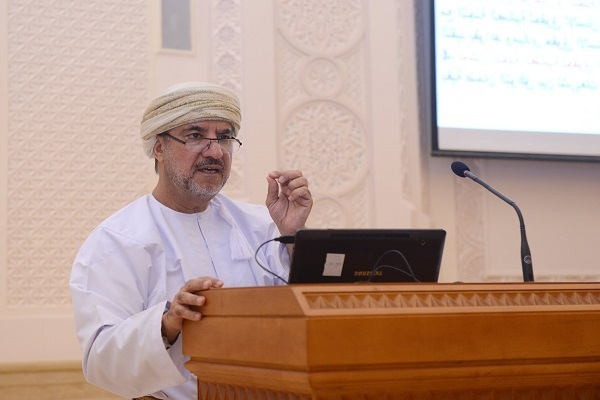West’s Individualist Human Rights Has Led to Breakdown of Family, Omani Official Says

Freedom in the West is absolute and considers no limits on individual freedom, whereas freedom in Islam is bound by Sharia and moral principles, Rashid bin Hamad Al Balushi, added in a speech at the first international conference on “Human Rights in the Eastern Perspective”, which kicked off in Tehran on Monday, April 28, 2025.
Islamic Sharia and human rights in Islam are more collective and more considerate of the interests of society, he said.
Comparing the Islamic culture and Western culture, he noted that Western liberal human rights overlooks individual rights and gives the individual authenticity and ignore collective rights.
While the West considers no limits to individual freedoms, in the Islamic culture, rights and duties are considered together, and a person is not free to jeopardize the freedom of others for the sake of his own freedom.
He further said, “I want to share with you the human rights experience of Oman. The principles of human rights in Oman are based on the principles of justice, moderation and moderation, council and monarchy. Oman has had extensive trade and cultural relations with African and Eastern cultures for centuries. Now there are Africans, Indians, Iranians and so on present in Oman. Our country recognizes and respects all these cultures.”
He added that Oman has also given women a very high status and has recognized and used them in high political and governmental positions.
“Oman is a party to seven of the nine existing international human rights treaties. The country believes that it should take into account Sharia and Islamic considerations in joining these treaties and should give priority to Islamic laws in case of conflict between international laws and Sharia laws.”
Al Balushi went on to say, “Using the principles of moderation and wisdom in governance has made Oman a powerful country and has an important position in the region and is respected by everyone. We are seeking to redefine the concept of human rights in terms of the laws of Sharia as well as the requirements of today's world.”
Read More:
The first international conference on “Human Rights in the Eastern Perspective” has been organized by the Islamic Culture and Relations Organization in cooperation with the Baqir al-Olum University.
The three-day event is aimed at reevaluating contemporary human rights discourse by drawing from the philosophical, cultural, and civilizational traditions of the East.
With participation of 40 international scholars representing 22 countries, the event seeks to foster critical dialogue and scholarly exchange on how non-Western civilizations and religious traditions can contribute to redefining the foundations of human rights. Organizers hope to establish a network of Eastern scholars and practitioners, laying the groundwork for drafting a human rights framework rooted in cultural diversity, spiritual traditions, and collective identity.
Among the key conceptual pillars of the conference is a critique of the dominant Western-centric model of human rights.
The Eastern perspective emphasizes a communitarian view of human dignity, cultural rights, social responsibility, and moral agency.
Topics of discussion will include solidarity rights, the need to de-centralize human rights institutions from the Global North, and redefining the role of civil society actors beyond state-centric models. Organizers stress that a genuine and pluralistic discourse on human rights must recognize the legitimacy of different moral and epistemological systems and resist efforts to universalize Western liberal norms.
The conference is positioned as part of a broader initiative to establish a sustainable intellectual framework that integrates religious, cultural, and philosophical insights from the East into the global human rights conversation.
4278925



